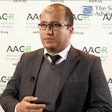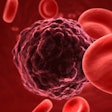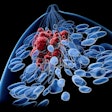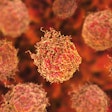
NEW ORLEANS -- In an interview with LabPulse.com, Tanjina Kader, PhD, of the Women's Cancer Research Program at the Sir Peter MacCallum Cancer Centre in Australia, shares an overview of her research on ductal carcinoma in situ (DCIS) at the American Association for Cancer Research (AACR) Annual Meeting.
In the study, Kader et al found that patients with recurrent DCIS lesions that are genetically distinct from the primary tumor may require different treatment.
"These findings can influence how patients are managed in the clinic," commented Kader. "For example, the occurrence of a new primary lesion in the same patient suggests a high-risk breast environment in which new tumors may develop over the years. Therefore, such patients would be candidates for preventative breast removal surgery even if the tumor is small, and they might be referred to genetic testing to ascertain whether they have any genetic predisposition."
In addition, Kader explains how tumor biomarkers can help in predicting new tumors, the concept of building a family tree of tumors based on genetic events, and how women with DCIS can potentially be impacted by these findings. Watch the video below to find out more.



















